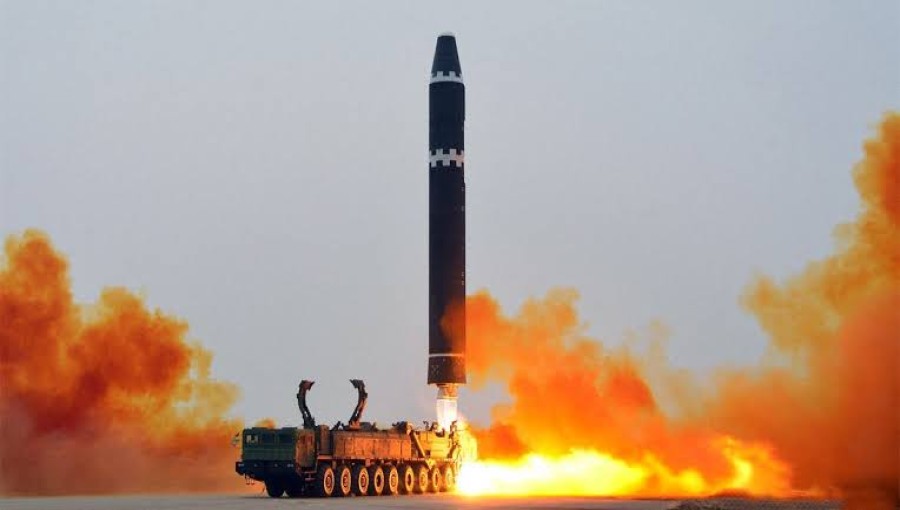On Sunday (March 17), North Korea fired another intercontinental ballistic missile (ICBM) towards the sea east of the Korean peninsula, confirmed South Korea's Joint Chief of Staff. While specific details regarding the missile launch were not immediately disclosed, the provocation has reignited concerns over regional stability.
Japanese Prime Minister Fumio Kishida swiftly condemned the missile launch, emphasizing its destabilizing impact on peace and security in the region. Addressing the country's parliament, Kishida underscored the gravity of Pyongyang's actions, highlighting the need for a unified response to address such threats effectively.
While all the missiles launched by North Korea reportedly fell into the sea, Tokyo asserts that one of the projectiles landed within Japan's exclusive economic zone, heightening anxieties over the proximity of the missile tests to neighboring territories. The incident comes on the heels of a 10-day joint military exercise between South Korea and the United States, which concluded last Thursday, and amid escalating tensions in the region.
North Korea's recent uptick in military activity underscores the persistent challenges posed by its missile program and its willingness to defy international norms, despite ongoing diplomatic efforts to address nuclear proliferation on the Korean peninsula. As global stakeholders monitor the situation closely, the missile launch serves as a stark reminder of the volatile dynamics shaping regional security in Northeast Asia.































Comment: